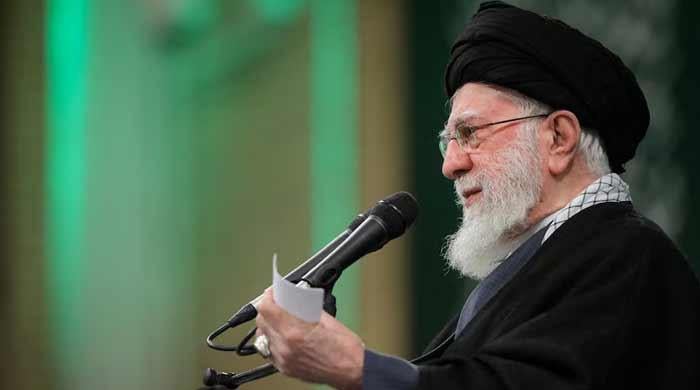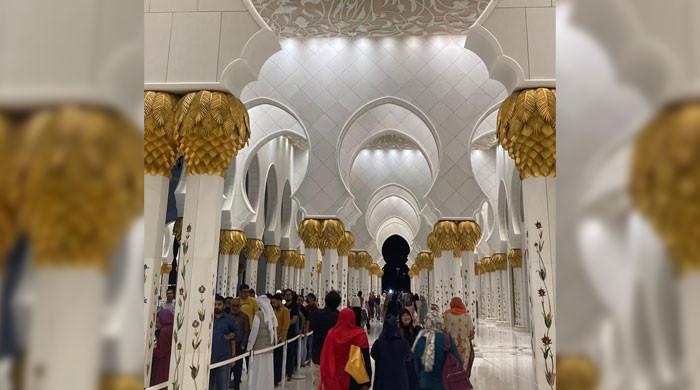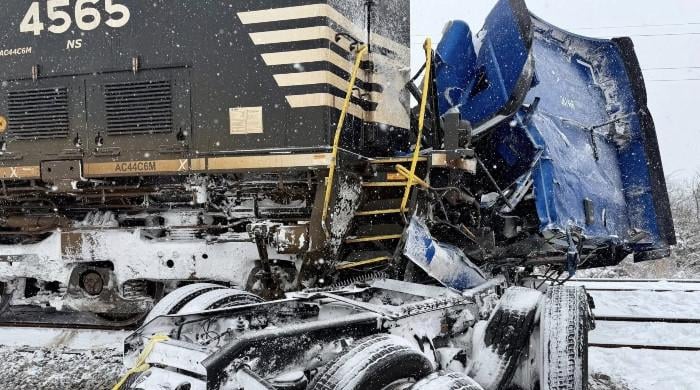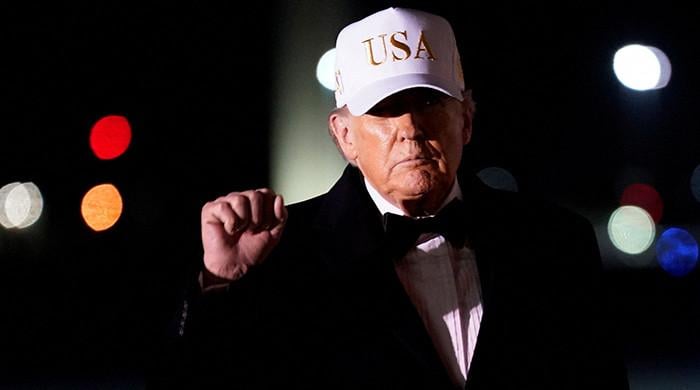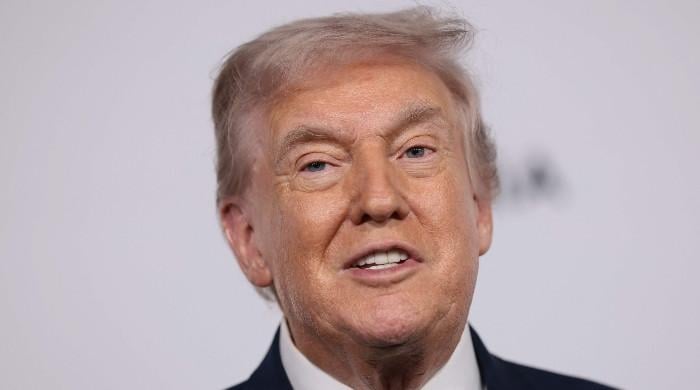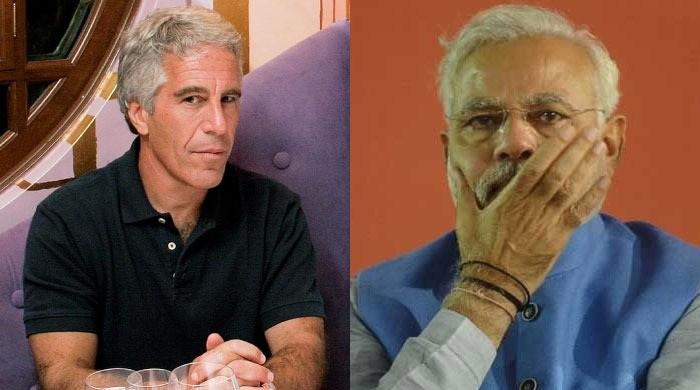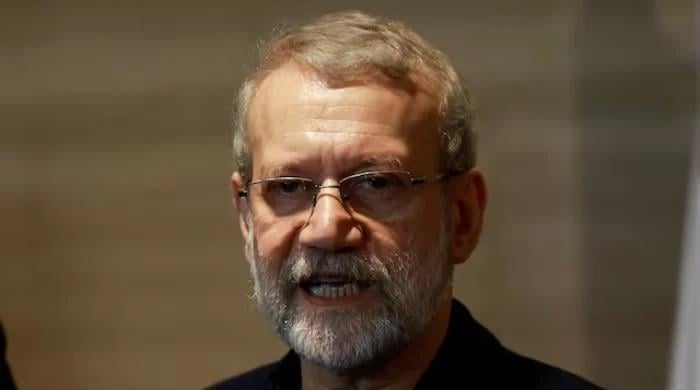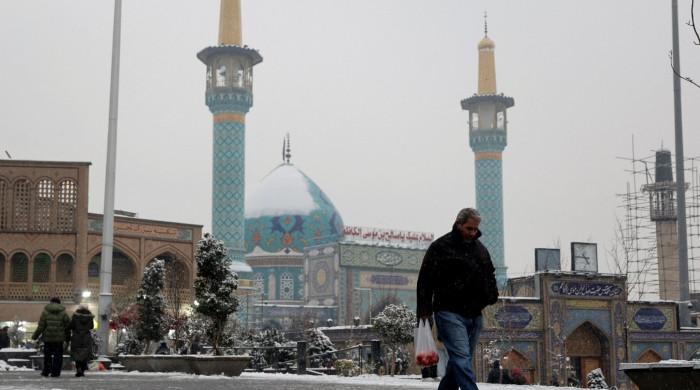#BlueForSudan hits social media to highlight military abuse, rights violations
#BlueForSudan trends as social media users change profile pictures to blue to show solidarity with protesters
June 13, 2019
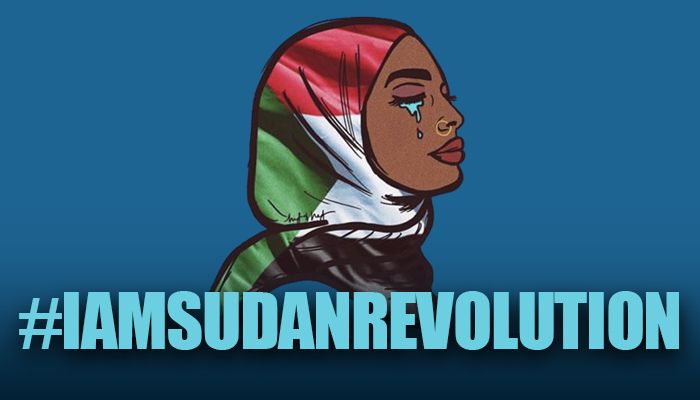
KARACHI/KHARTOUM: Social media has been witnessing a wave of a specific shade of blue as users around the world are changing their profile pictures to stand in solidarity with the rights violations being allegedly committed by the Sudanese military after ex-President Omar al-Bashir's ouster.
The very unique shade of blue holds importance as it was the favourite colour of "Mohamed Mattar, a 26-year-old engineer and graduate of London's Brunel University, [who] was shot by the Rapid Support Forces (RSF) on 3 June, reportedly as he attempted to shield two women from harm", according to Middle East Eye.
Mattar, now being remembered by admirers, protesters, friends, and family, was said to have been shot dead during a peaceful sit-in outside the Sudanese military's headquarters in Khartoum, the country's capital.
Mattar and his fellow protesters demanded the Sudanese military shift power from themselves over to a civilian government.
Social media user and freelance feminist writer Scintilla — @errfnern — also took to Twitter to explain where the colour came from.
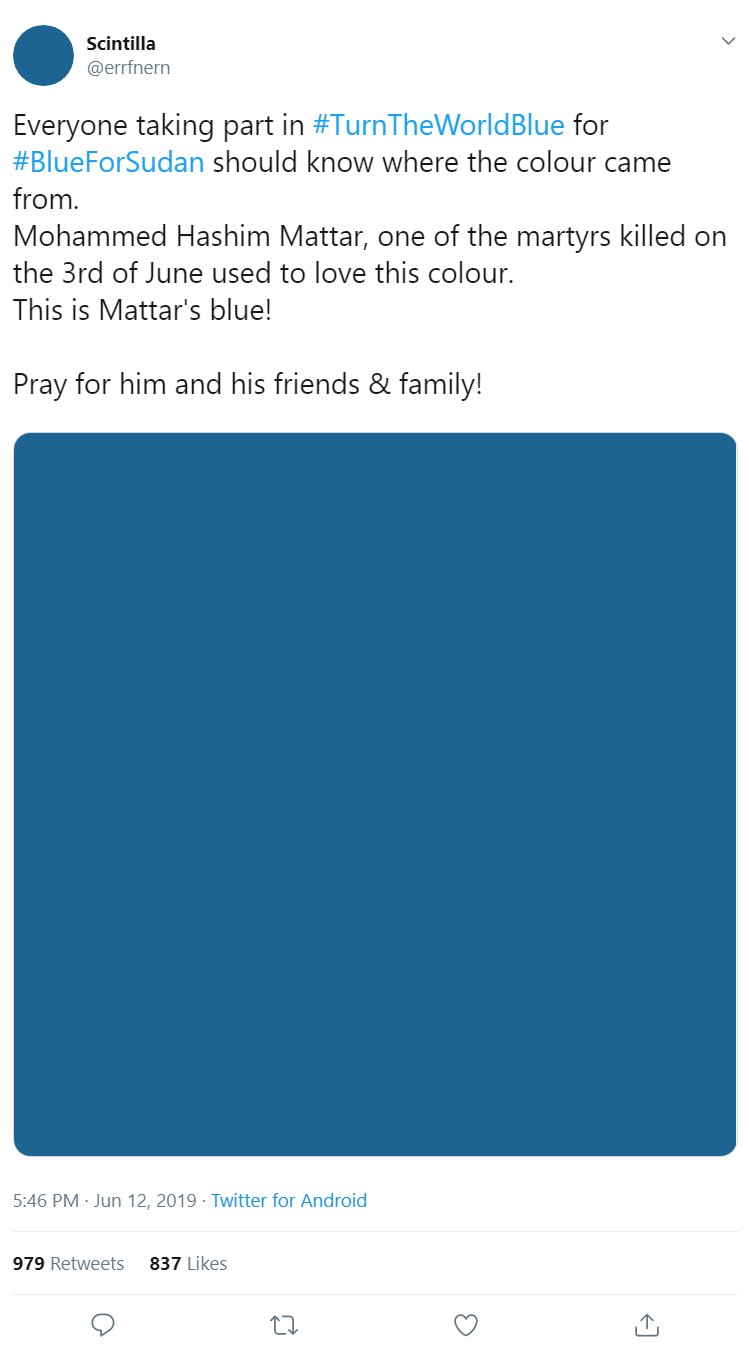
"Mohammed Hashim Mattar, one of the martyrs killed on the 3rd of June used to love this colour. This is Mattar's blue! Pray for him and his friends & family!"
117 killed: medics
A civil disobedience campaign to demand civilian rule had left the streets of Sudan’s capital Khartoum largely deserted on Sunday, while police fired tear gas to disperse protesters in Khartoum North, witnesses said.
Opposition and protest groups had called for workers to stay at home after security forces stormed a protest camp on Monday, killing dozens and dealing a blow to hopes of a peaceful transition after al-Bashir’s ouster in April.
The raid had come after weeks of wrangling between the military council — that took over from Bashir — and the Declaration of Freedom and Change Forces (DFCF) alliance over who should control a transition leading to elections.
On Sunday morning, the start of the working week in Sudan, few pedestrians or vehicles were seen in the streets. Public transport barely functioned and most commercial banks, private companies, and markets were shut.
Some state banks and public utility offices were working normally.
At Khartoum airport, where very few flights were operating, travellers crowded the departure hall. Most travel agencies were closed because of an internet outage, and ticket prices soared.
In Khartoum North, across the Blue Nile from the centre of the capital, police had fired tear gas to scatter protesters. There were no reports of casualties.
Demonstrators were trying to barricade roads in the capital over recent days as a way of sustaining the protest movement.
Also on Sunday, Sudanese state TV had reported that a senior commander of the Rapid Support Forces (RSF), Mohamed Abdallah, had been replaced. Witnesses said the RSF, whose leader General Mohamed Hamdan Dagalo is deputy head of the Transitional Military Council, led last Monday’s raid.
Opposition medics had said 117 people were killed in the storming of the camp outside Khartoum’s Defence Ministry and subsequent security crackdown.
The government, however, put last week’s death toll at 61, including three members of the security services.




